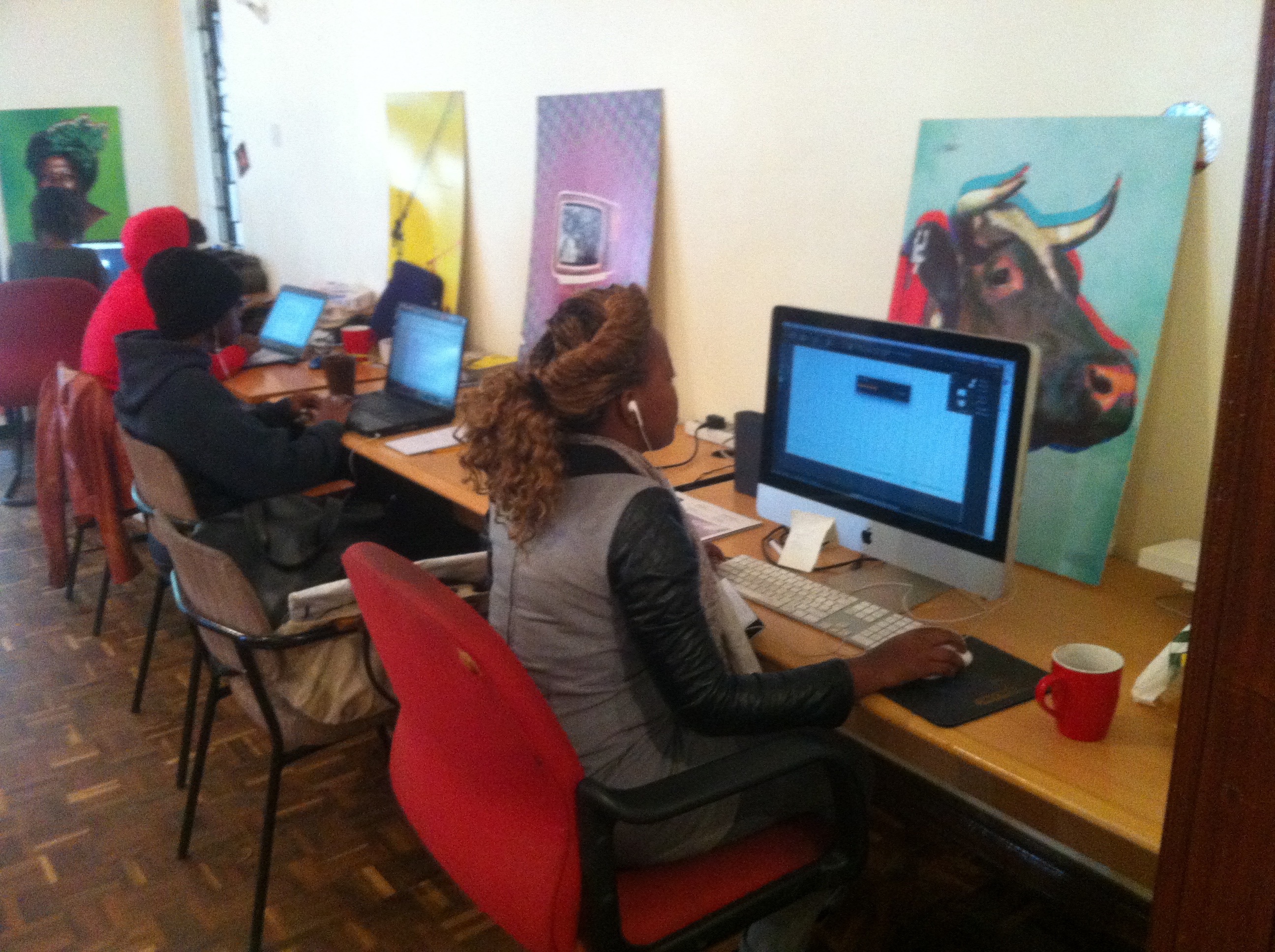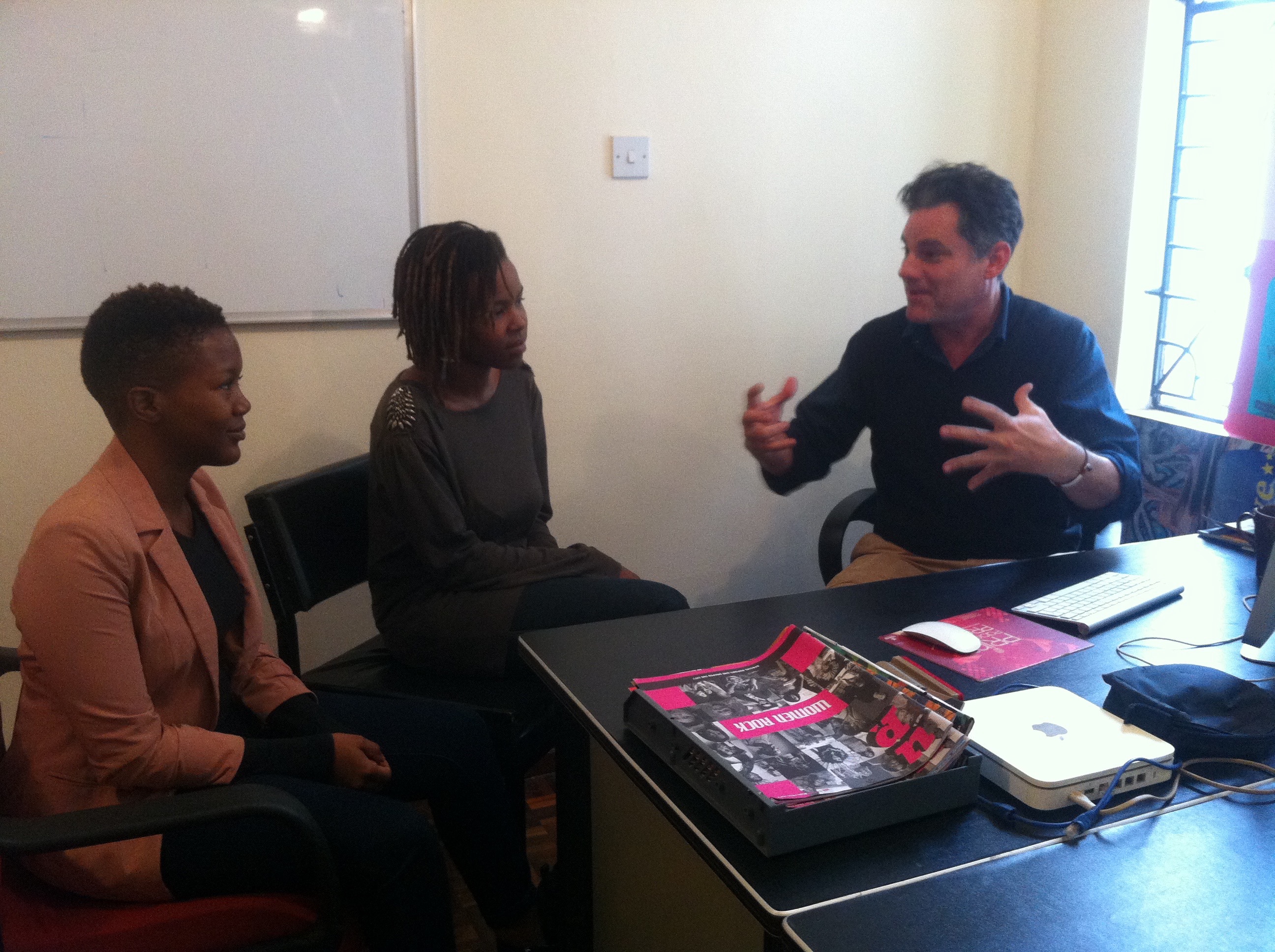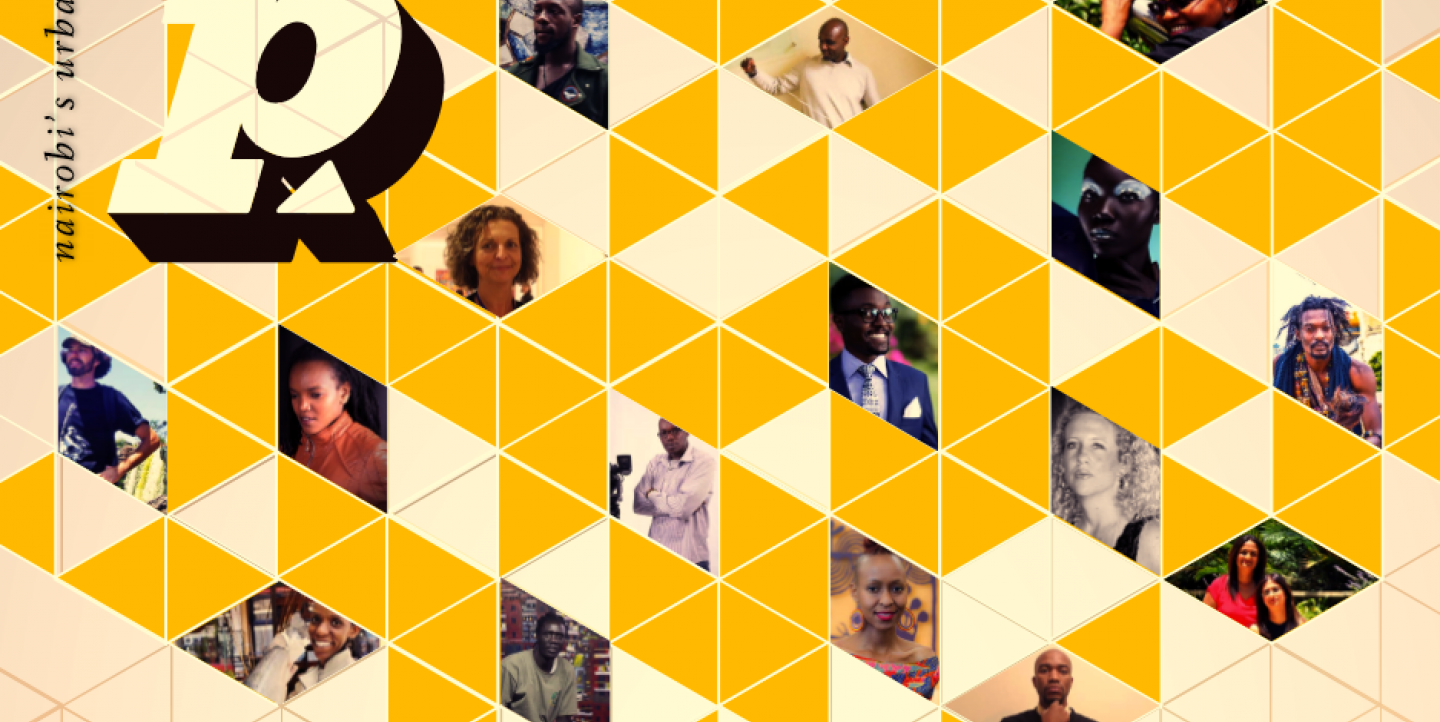Imagine you’ve just arrived in an East African capital city for the first time and you want to know what the cultural scene is like. Before you know it, you’ve happened upon a free, four-color monthly magazine featuring local stories on arts, events and music – even editorials on what’s happening with the country’s government.
UP Nairobi might be that magazine.
Its name is part acronym, part double entendre: Urban Perspective Nairobi and Urban Positive Nairobi. It alludes to both the sophistication of a rising middle class in Kenya’s capital and one empowered enough to change the narrative of the poor, needy “African” stereotype often portrayed in the Western media.
The magazine’s start came after UP’s parent company, Mondeas, partnered with a South African TV network project. When that contract ended, Rand Pearson and his wife, Sapna Chandaria, hatched the idea for UP.
Launched in 2009 by Pearson, UP Nairobi’s rise coincided with Kenya’s fragile recovery from post-election violence in late 2007 and early 2008, which left more than 1,000 people dead, according to various estimates.
 “The idea was and still is that we get out of the ‘negative Africa’ media cycle,” Pearson said. “We wanted to build and reflect a positive image of the city. ... Perhaps ironically, Nairobi really exploded creatively after the violence. We survived from a business perspective through all that and emerged as a voice for this positive change mindset that came out of that violence.”
“The idea was and still is that we get out of the ‘negative Africa’ media cycle,” Pearson said. “We wanted to build and reflect a positive image of the city. ... Perhaps ironically, Nairobi really exploded creatively after the violence. We survived from a business perspective through all that and emerged as a voice for this positive change mindset that came out of that violence.”
UP has an all-Kenyan staff, apart from Pearson. Two critical staff members are Olivia Kidula, associate editor, and Helen Lang’at, digital editor, both born and raised in Nairobi.
Like many budding journalists, Lang’at cut her teeth blogging. These days, her responsibilities at UP are more substantial.
“For the website, we're doing a big re-launch soon,” Lang’at said. “The challenges we're faced with are to provide our readers content they can immerse themselves in – from clever listicles to longform reads. Content is updated daily.”
She said Nairobi is a beacon in Kenya, largely accounting for an internet penetration of 32 million in a country of roughly 45 million, which means more than two-thirds of the country are now online. Lang’at also said U.S.-based tech giants like Microsoft, Google and Intel have all “set up shop in Nairobi as their way into Africa.”
But there are bigger challenges than enticing readers, Pearson said.
“One main issue that we contend with regularly are power outages,” he noted. “I have counted. We lose, on average, over a month a year to them. And our landlord refuses to put in a generator, which are big, noisy and expensive. We finally got one at home and this helps a bit. In emergencies, or on deadlines, we all pile up at our house, make tea and work from the living room.”
He said security is another issue to contend with. Terrorists from neighboring Somalia staged a major attack in Nairobi in 2013, but the staff at UP don't let it dictate their lives.
Next year, however, Kenyans will return to the polls — and there are already signs of trouble. Police brutally beat opposition protesters this week in Nairobi, bringing the kind of international notoriety UP tries to dispel. Pearson worries about another turbulent election cycle. Overall, everyone wants stability, he said.
 “If there is another all-out tribal war during election season next year, I think that would greatly diminish our business prospects, as it completely decimates revenue,” he said. “It nearly ruined our business in 2008 and that shock wave lasted two years.”
“If there is another all-out tribal war during election season next year, I think that would greatly diminish our business prospects, as it completely decimates revenue,” he said. “It nearly ruined our business in 2008 and that shock wave lasted two years.”
Kidula said everyone is keeping a close eye on the future, but she has to stay focused from issue to issue. She is responsible for managing the content flow for different projects, along with assigning staff writers, freelancers and interns various tasks, depending on current content demands.
“What we have is a reputation for good reportage,” Kidula said. “Pick up any UP magazine – whether it’s from 2010 or 2016 – and you will find great, well-written pieces. UP is a staple on the Nairobi scene. We curate the middle class – we criticize it, poke fun at it and so on. We have been in the hot seat a couple of times, pissing off people with our gritty urban takes on life in and outside Nairobi.”
Nor does UP shy away from controversial topics. They’ve reported on black market breast augmentation, “corrective rape” LGBT stories and a missing UP photographer piece, among others.
Ultimately, Pearson and his staff just want to keep serving Kenyans.
“I like us best when we are being progressive, applied equally to in-depth features and coverage of arts, culture and innovation,” he said. “We help show the community where the leading edge is – what's trending. That's our community service, if you will.”
Main image is a screenshot from UP Nairobi's October 2015 issue. Secondary image taken by Sapna Chandaria. Third image [left to right]: Helen Lang'at, Olivia Kidula and Rand Pearson; photo by Sapna Chandaria.

